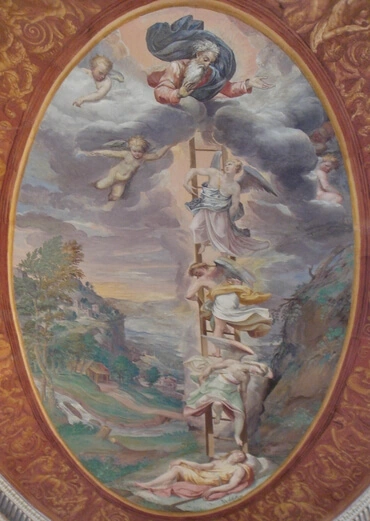1
På den tid då Amrafel var konung i Sinear, Arjok konung i Ellasar, Kedorlaomer konung i Elam och Tideal konung över Goim, hände sig
2
att dessa begynte krig mot Bera, konungen i Sodom, Birsa, konungen i Gomorra, Sinab, konungen i Adma, Semeber, konungen i Seboim, och mot konungen i Bela, det är Soar.
3
De förenade sig alla och tågade till Siddimsdalen, där Salthavet nu är.
4
I tolv år hade de varit under Kedorlaomer, men i det trettonde året hade de avfallit.
5
Så kom nu i det fjortonde året Kedorlaomer med de konungar som voro på hans sida; och de slogo rafaéerna i Asterot-Karnaim, suséerna i Ham, eméerna i Save-Kirjataim
6
och horéerna på deras berg Seir och drevo dem ända till El-Paran vid öknen.
7
Sedan vände de om och kommo till En-Mispat, det är Kades, och härjade amalekiternas hela land; de slogo ock amoréerna som bodde i Hasason-Tamar.
8
Då drogo konungen i Sodom, konungen i Gomorra, konungen i Adma, konungen i Seboim och konungen i Bela, det är Soar, ut och ställde upp sig i Siddimsdalen till strid mot dem --
9
mot Kedorlaomer, konungen i Elam, Tideal, konungen över Goim, Amrafel, konungen i Sinear, och Arjok, konungen i Ellasar, fyra konungar mot de fem.
10
Men Siddimsdalen var full av jordbecksgropar. Och konungarna i Sodom och Gomorra måste fly och föllo då i dessa, och de som kommo undan flydde till bergsbygden.
11
Så togo de allt gods som fanns i Sodom och Gomorra, och alla livsmedel där, och tågade bort;
12
de togo ock med sig Lot, Abrams brorson, och hans ägodelar, när de tågade bort; ty denne bodde i Sodom.
13
Men en av de räddade kom och berättade detta för Abram, hebréen; denne bodde vid den terebintlund som tillhörde amoréen Mamre, Eskols och Aners broder, och dessa voro i förbund med Abram.
14
Då nu Abram hörde att hans frände var fången, lät han sina mest beprövade tjänare, sådana som voro födda i hans hus, tre hundra aderton män, rycka ut, och förföljde fienderna ända till Dan.
15
Och han delade sitt folk och överföll dem så om natten med sina tjänare och slog dem, och förföljde dem sedan ända till Hoba, norr om Damaskus,
16
och tog tillbaka allt godset; sin frände Lot och hans ägodelar tog han ock tillbaka, ävensom kvinnorna och det övriga folket.
17
Då han nu var på återvägen, sedan han hade slagit Kedorlaomer och de konungar som voro på hans sida, gick konungen i Sodom honom till mötes i Savedalen, det är Konungsdalen.
18
Och Melki-Sedek, konungen i Salem, lät bära ut bröd och vin; denne var präst åt Gud den Högste.
19
Och han välsignade honom och sade: »Välsignad vare Abram av Gud den Högste, himmelens och jordens skapare!
20
Och välsignad vare Gud den Högste, som har givit dina ovänner i din hand!» Och Abram gav honom tionde av allt.
21
Och konungen i Sodom sade till Abram: »Giv mig folket; godset må du behålla för dig själv.»
22
Men Abram svarade konungen i Sodom: »Jag lyfter min hand upp till HERREN, till Gud den Högste, himmelens och jordens skapare, och betygar
23
att jag icke vill taga ens en tråd eller en skorem, än mindre något annat som tillhör dig. Du skall icke kunna säga: 'Jag har riktat Abram.'
24
Jag vill intet hava; det är nog med vad mina män hava förtärt och den del som tillkommer mina följeslagare. Aner, Eskol och Mamre, de må få sin del.»







